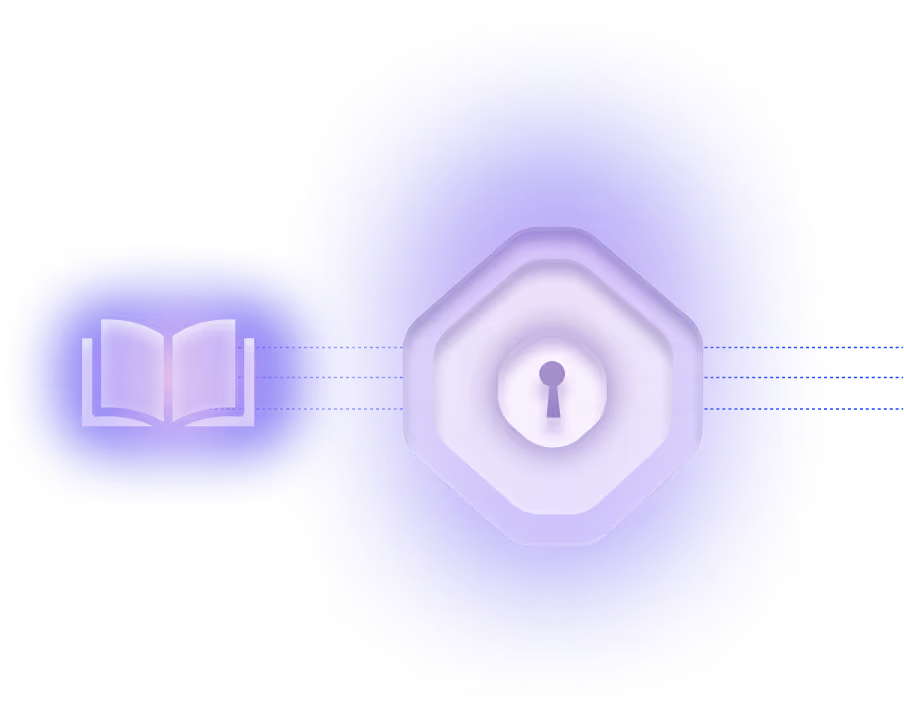Attestation

What is attestation?
In cybersecurity, attestation is the process of verifying the integrity, authenticity, and compliance of a system, identity, or workload—most often through cryptographic means. In the context of non-human identities (NHIs), such as service accounts, API keys, and machine credentials, attestation provides a mechanism to establish trust in otherwise opaque or automated entities that lack traditional security controls like passwords or MFA. Attestation can confirm that an NHI is operating in a secure, verified environment, under approved configurations, and on behalf of a legitimate owner.
Why is it important?
Attestation is essential for enterprises seeking to enforce Zero Trust principles, especially in cloud-native and hybrid environments. NHIs often operate autonomously, making it difficult to assess their legitimacy or security posture in real-time. Attestation fills this gap by continuously validating that an NHI meets specific security policies—whether it's running on approved infrastructure (e.g., Nitro Enclave, TPM), under proper ownership, or performing sanctioned tasks. It also plays a critical role in meeting regulatory requirements such as PCI DSS, HIPAA, and NIST 800-207, which emphasize identity accountability and runtime verification for workloads.
What are common applications or use cases?
In practice, attestation is implemented in several ways. For example, cloud providers like AWS use hardware-rooted attestation (e.g., Nitro Enclaves) to validate the integrity of virtual machines before allowing access to sensitive resources such as encryption keys. Similarly, enterprises may use automated attestation workflows to confirm human ownership of NHIs—triggering reviews when permissions change or on a scheduled basis. Runtime attestation is also used in containerized environments (e.g., Kubernetes) to ensure that NHIs are only issued credentials if their workloads match expected configurations and security baselines.
What is the connection to NHIs (Non-Human Identities)?
Attestation is particularly critical for NHIs, as they lack the behavioral and contextual signals available with human users. NHIs can be overprivileged, long-lived, or unknown (“shadow NHIs”), making them prime targets for misuse or compromise. Attestation strengthens NHI security by enforcing cryptographic validation during identity issuance, enforcing least privilege through policy-based checks, and automating ownership verification. It ensures that NHIs are not only known to the organization but are also operating securely and in compliance with governance policies.
Are there any notable industry data, trends, or standards?
Industry research shows that over 60% of cloud breaches involve compromised machine credentials, many of which could have been mitigated through structured attestation processes. Standards such as NIST SP 800-207 (Zero Trust Architecture) and the PCI DSS v4.0 now explicitly recommend workload identity verification, while emerging technologies like post-quantum cryptography and AI-driven policy engines are redefining how attestation is implemented at scale. With NHIs outnumbering human users by more than 10:1 in enterprise environments, scalable attestation mechanisms are becoming a foundational requirement for security teams.
What is the broader impact or takeaway?
Attestation transforms NHIs from unverified automation agents into trusted entities with provable integrity and ownership. By embedding attestation into the NHI lifecycle—from provisioning to decommissioning—organizations can reduce risk, enforce least privilege, and meet evolving compliance demands. It also supports broader Zero Trust and automation strategies, enabling secure digital transformation without sacrificing operational agility. For enterprises managing thousands of NHIs across multi-cloud environments, attestation is not just a control—it's a strategic enabler of secure, resilient infrastructure.





